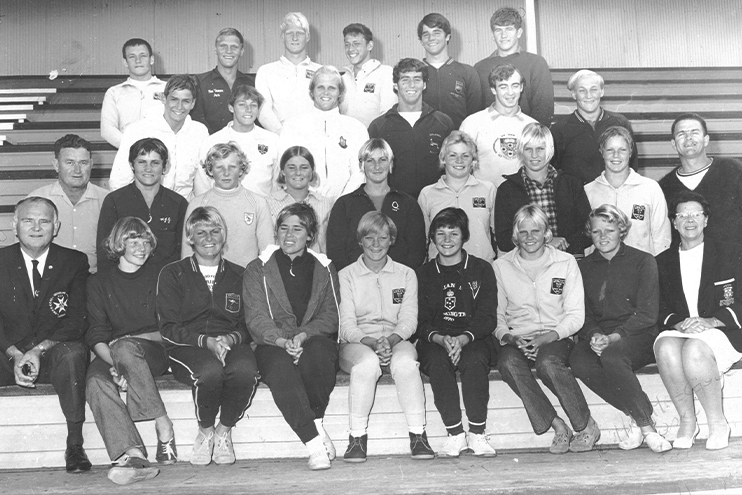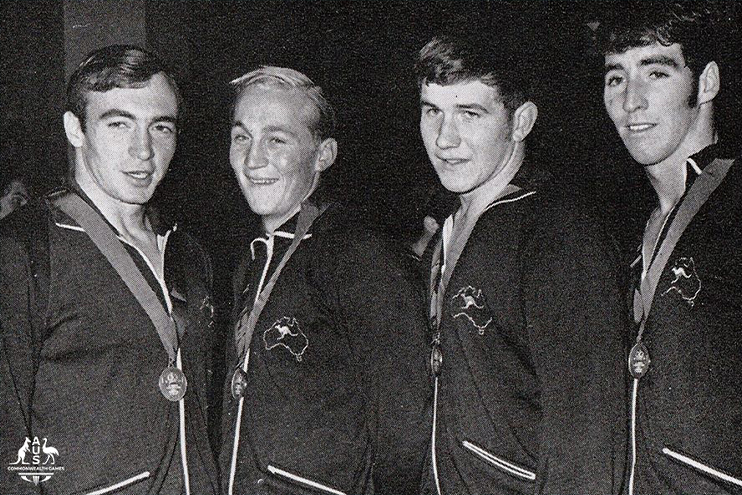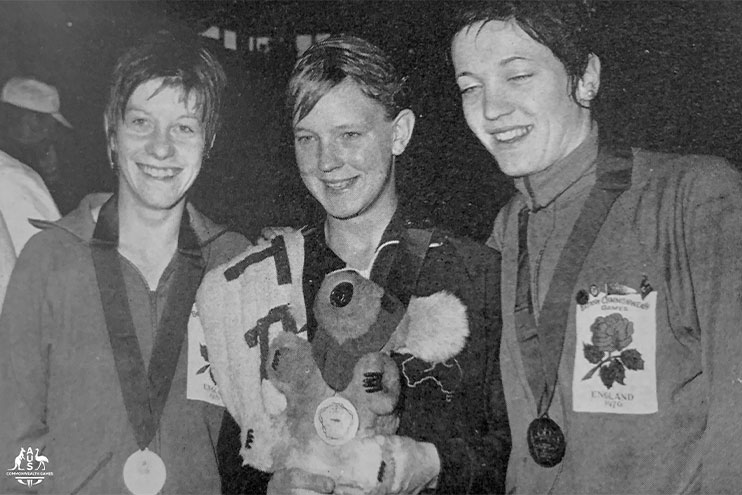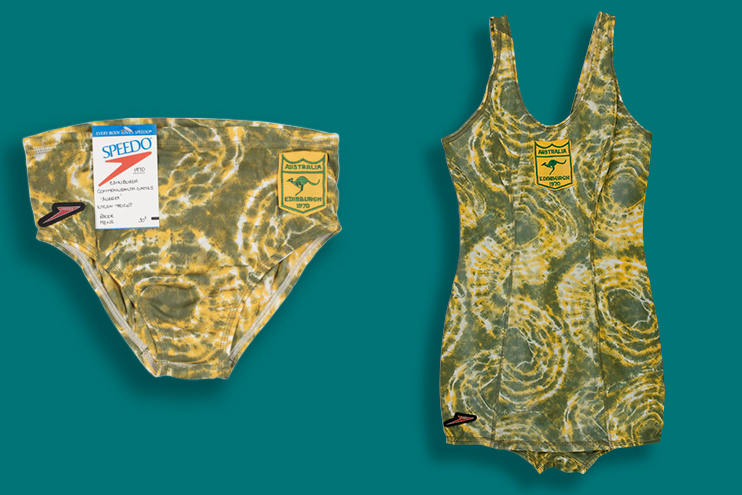
At the newly constructed Royal Commonwealth Pool, 29 events were going to be contested, with 87 medals on offer for the competitors.
In the lead-up to the Edinburgh 1970 Commonwealth Games, Australian chief coach Don Talbot was excited about the team selected to compete.
“This is a good crowd. It’s the best all-round swimming team ever to leave Australia,” Talbot told The Australian Women’s Weekly.
“Our chances at Edinburgh are very good… we are the No. 1 swimming nation in the Commonwealth.”
The Edinburgh 1970 Commonwealth Games saw the biggest number of countries competing at the Games, and it would provide the Australian swimmers a true test of their standing in the Commonwealth.
Our team would be represented by 26 swimmers, with the youngest team members were both a mere 13-year-olds, with Debra Cain, of Melbourne, Victoria, and Helen Gray, of Townsville, Queensland.
But the stars of the teams were Lynne Bates, Denise Langford, Michael Wenden and Karen Moras.
Watson headed into the Edinburgh 1970 Games as a 17-year-old, incredibly one of the oldest members of the team, and dominated the meet. Watson, now Lynne Bates after marriage, finished with four gold medals, winning the 100m and 200m backstroke double, swam legs in the 4x100m freestyle and 4x100m medley relay teams, and a silver in the 100m freestyle final. The Games would be the final major international meet for Watson as she retired before the 1972 Olympics but enjoyed a successful career in sports administration post-retirement.
Edinburgh 1970 British Commonwealth Games swimming highlights. (CGA Archive)
Another teenager who starred at the Games was 17-year-old Denise Langford. Hailing from Sydney, New South Wales, Langford won gold in the 200m and 400m individual medley double and swam legs in the 4x100m freestyle and 4x100m medley relay teams and claimed a silver medal in the 400m freestyle.
Michael Wenden came into the Games as a star of Australian swimming. After winning three golds at the 1966 Commonwealth Games, and four medals at the 1968 Mexico City Olympics, Wenden was expected to perform at the 1970 Games, and the superstar of the pool did not disappoint. Winning the blue-ribbon 100m freestyle event, Wenden added a further three gold medals to his total, including the 200m freestyle, the 4x100m freestyle relay team, and powering the 4x200m freestyle team to a new world record, and a silver medal in the 4x100m medley team. Wenden added two more gold medals at the 1974 Games to become one of the most-winningest athletes in Commonwealth Games history.

Men’s 4x200m World Record Team: (L-R) Michael Wenden, Graham White, Bill Devenish, Greg Rogers. (CGA Archive)
Another star of the swim team was 16-year-old Karen Moras. The Sydneysider came into the Edinburgh Games in red-hot form after dominating the Australian championships and was poised for greatness as she looked to complete the triple crown of freestyle events for Australia. The teenager dominated the 200m and 400m events en route to gold, but it was in the 800m freestyle, where the young swimmer showed she was a class above. Slashing an absurd nine seconds off of the world record time, Moras went on to complete the triple crown of gold medals and etch her name into the record books.
Karen Moras shatters the Women’s 800m World Record time. (CGA Archive)
The female Australian swimmers dominated the pool winning 12 of the 14 events on offer. Moras won three gold medals, Langford four, Watson four, and another teenage phenomenon was 16-year-old Beverley Whitfield.
Hailing from Shellharbour, NSW, Whitfield dominated the breatstroke competition at the Edinburgh Games. The youngster won the 100m event in a Games record time, before completing the 200m double, breaking the Commonwealth record in the process. Whitfield returned to swim the breaststroke leg in the 4x100m medley relay team to finish the Games with three gold medals. Four years later in Christchurch in 1974, Whitfield added two silvers to her career total. Sadly the champion swimming passed away in 1996 at just 42 years of age. The ocean pool in her hometown of Shellharbour, NSW, is named the Beverley Whitfield Pool in her honour.

Beverley Whitfield (centre) was a revelation at the 1970 Games winning three gold medals. (CGA Archive)
The 1970 Games also saw the debut of Speedo’s first swimwear made extensively of nylon and elastane. The 100% nylon swimming outfits provided the Aussie swimmers with a lightweight uniform designed to reduce drag in the pool. Proving the swimwear was ahead of its time, the Australian swim team dominated the Edinburgh meet going on to win 42 of the 87 medals on offer, including 18 gold medals.
In an ironic twist, Speedo, a company founded by Alexander MacRae, a Scot living in Australia, helped power Australia to domination in the pool in Scotland.

